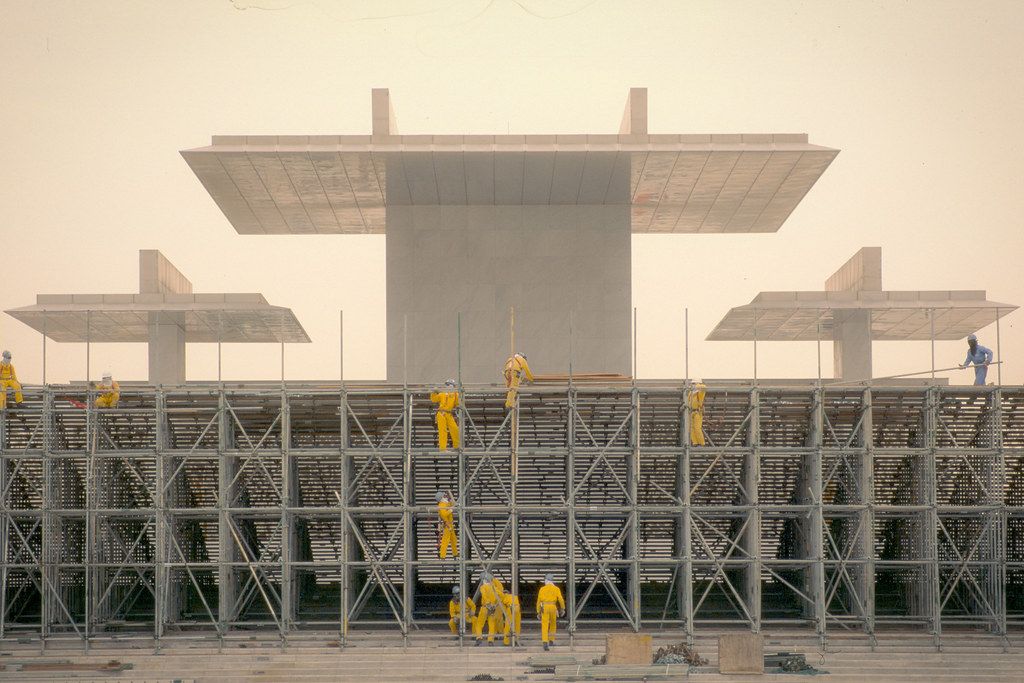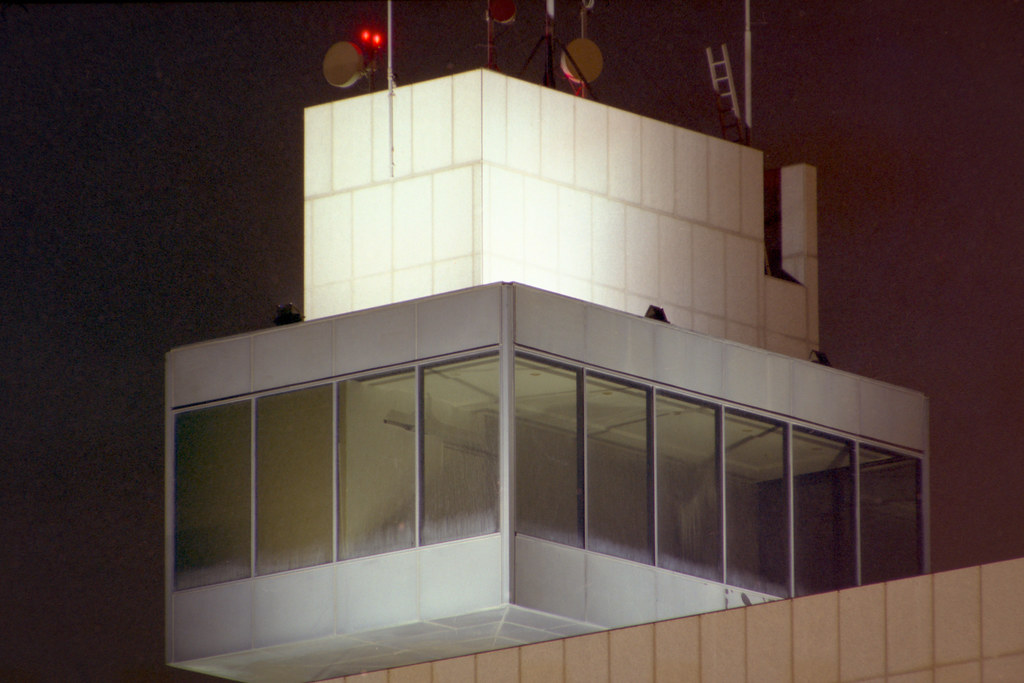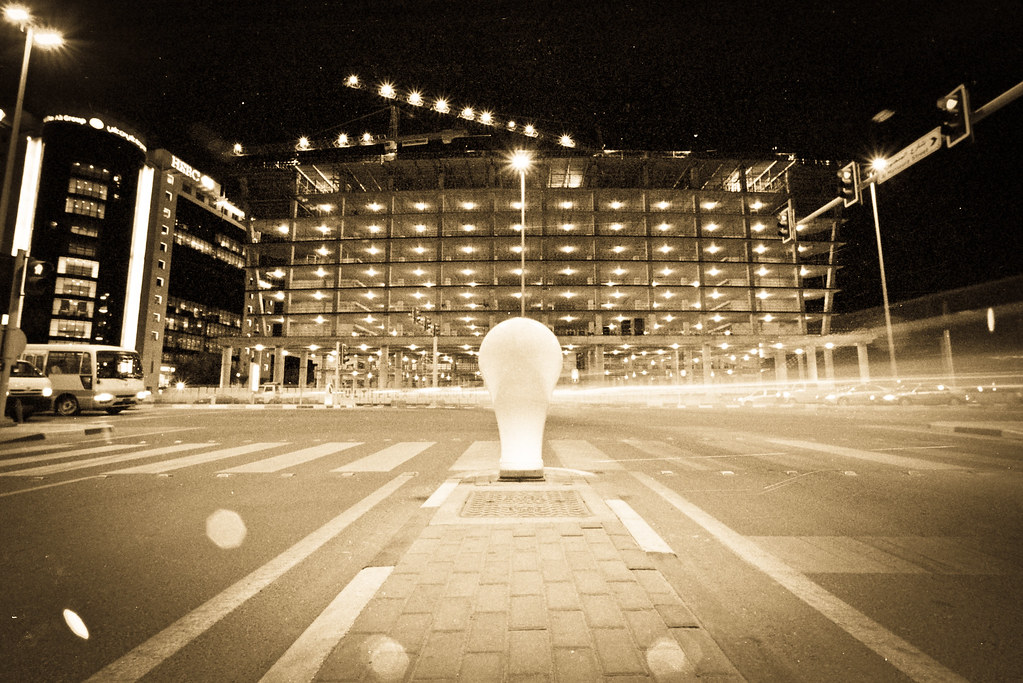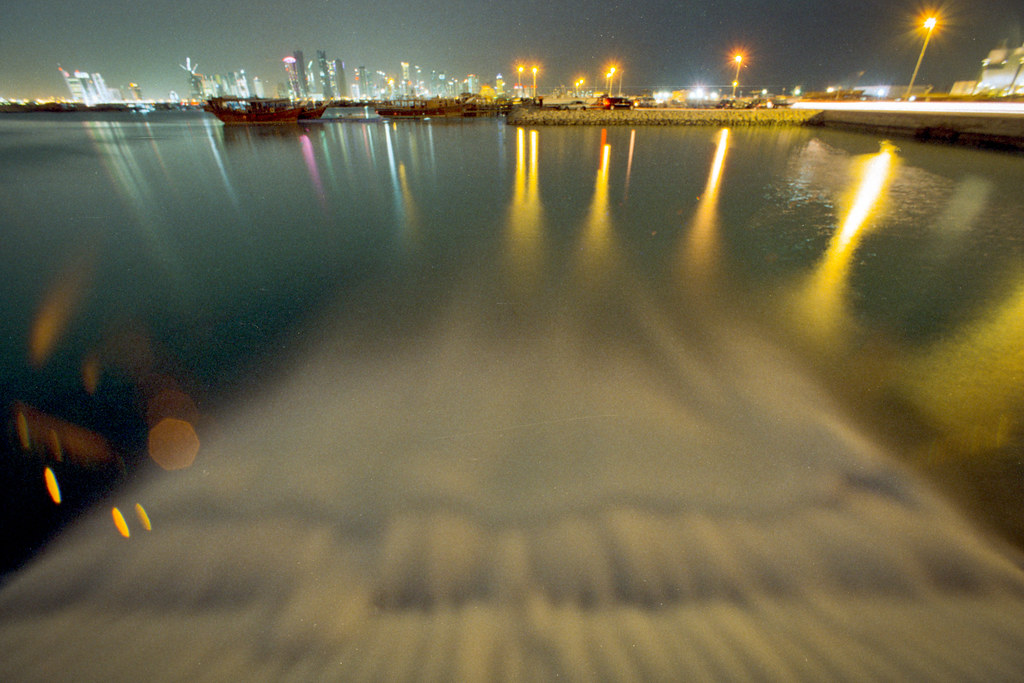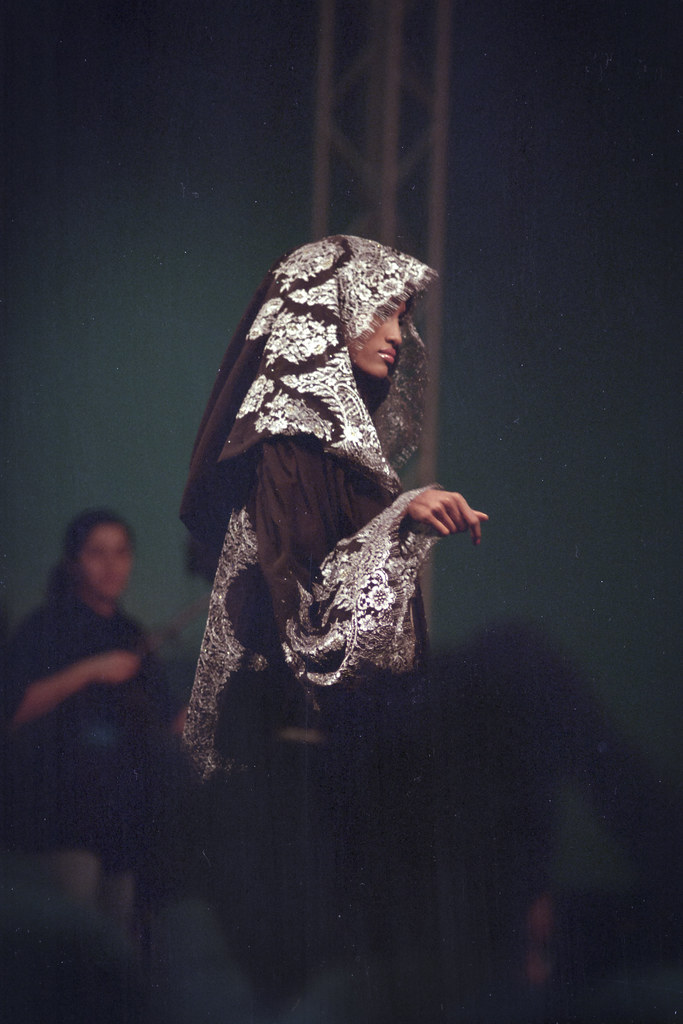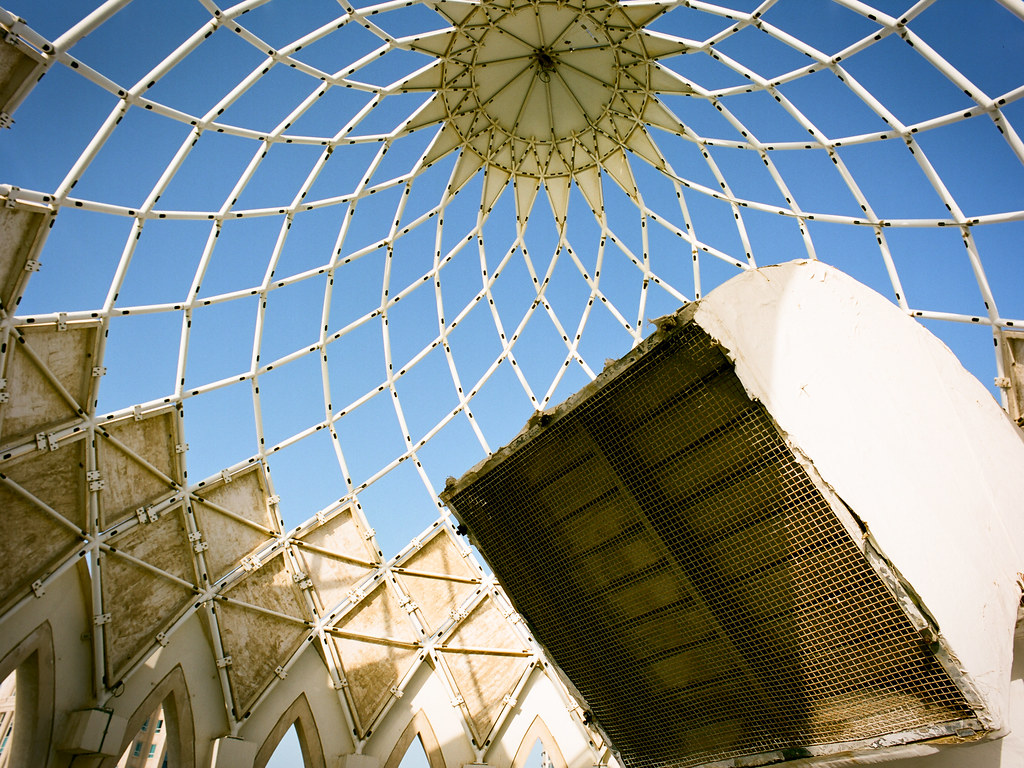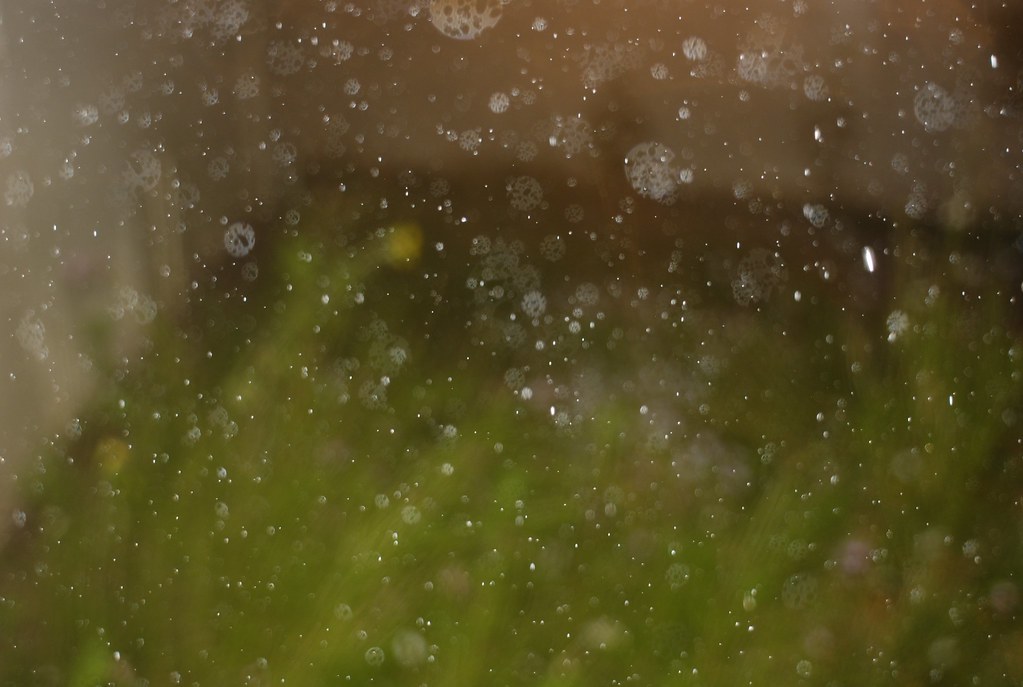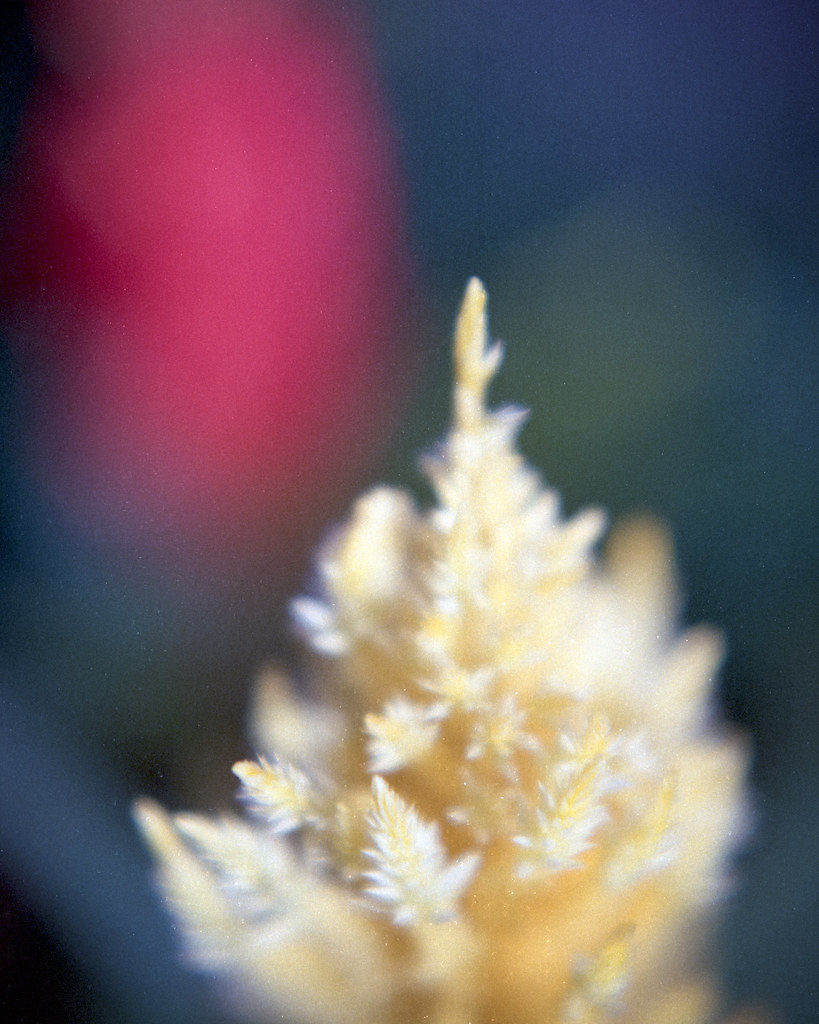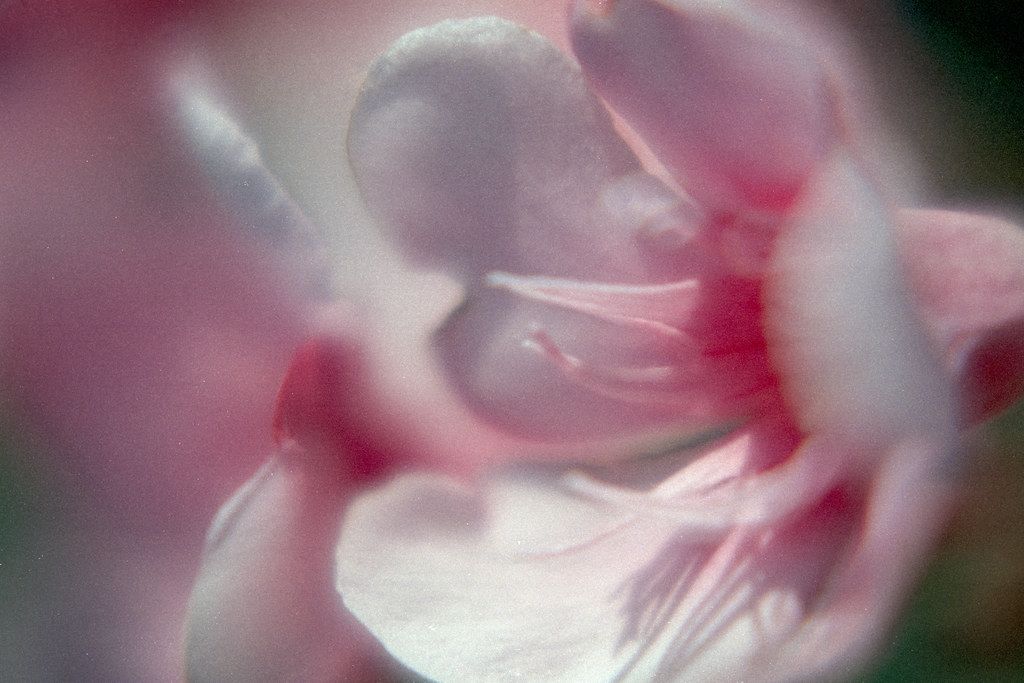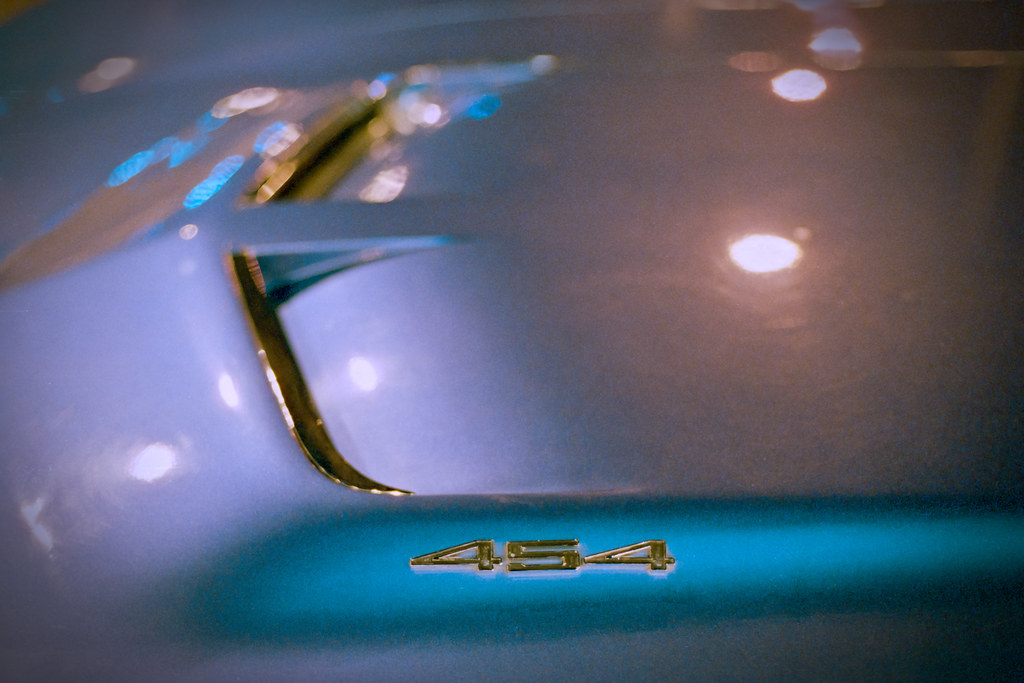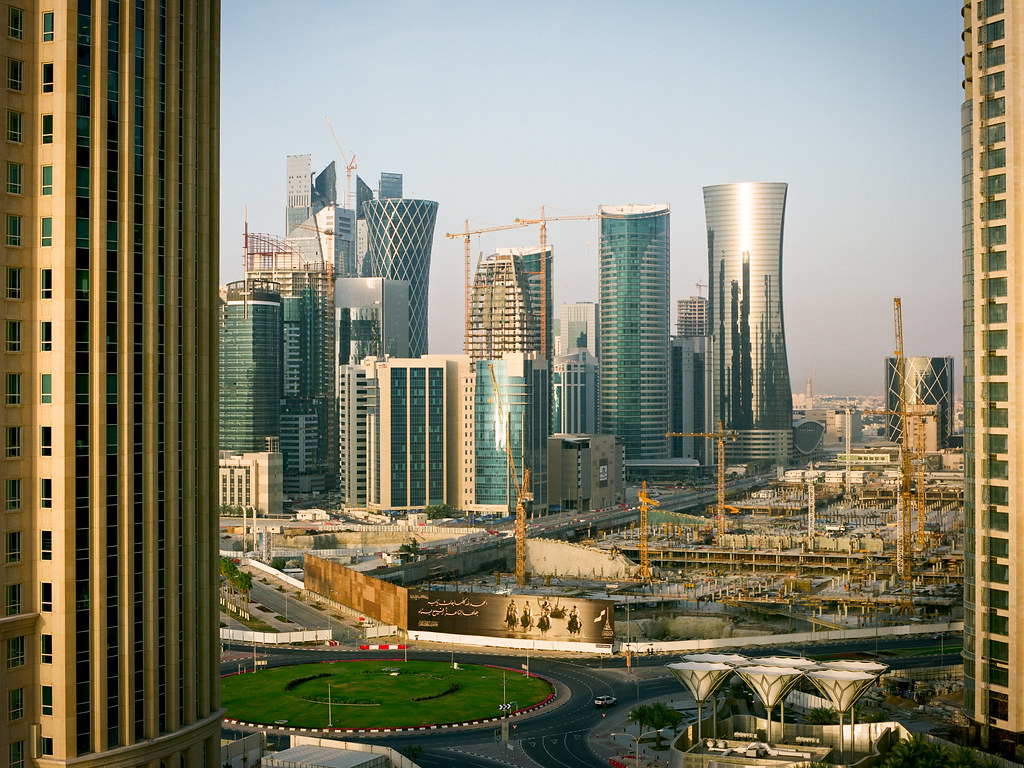
One of the difficult things to visualise when starting out in photography is the concept of the relationship between angle of view and perspective. Different lenses have different power to magnify the view before the camera and can produce more or less magnified views of the scene in front. However, the perspective will be unchanged as long as the camera is in the same place. In other words, it is impossible to distinguish between a picture taken with a 100mm lens and a picture taken with a 50mm lens and cropped. To get a truly different viewpoint requires moving yourself and the camera somewhere else. In this case, a high balcony.
Another thing to note here is the use of some nearby buildings to frame the distant view. This has the effect of focussing the viewer's attention at the point of interest.
